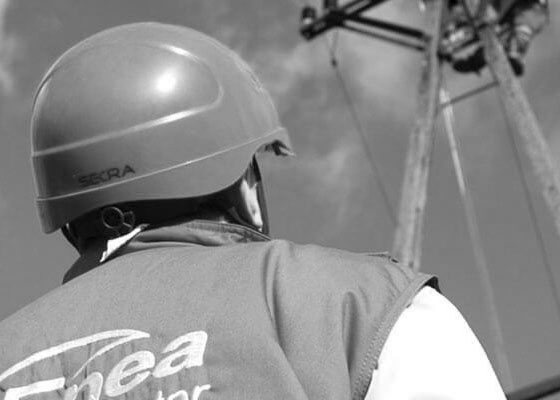About the reporting process
Corporate Social Responsibility Report (CSR) was prepared on the basis of the Global Reporting Initiative GRI STANDARDS guidelines at the CORE application level. This is the seventh report of the Group and presents data for the period from January 1, 2018 to December 31, 2018. The report summarizes the results in the area of economic, environmental, social, labour, human rights and counteracting corruption and bribery.
The report covers all companies forming the Enea Group, with the exception of the companies belonging to the LW Bogdanka Group. LW Bogdanka reports sustainability issues separately.
In addition, non-financial data covering all companies of the Enea Group, including companies not included in this Report, were reported in the "Statement on non-financial information of the Enea Capital Group for 2018", which is a separate part of "Report of the Management Board on the activities of Enea SA and Enea Group in 2018".
This year's report does not contain any significant changes regarding the scope, scope or methods of measurement with relation to the report for the previous year or any corrections to the information contained in the previous report. At the same time, it has not been subjected to additional external verification.
In order to exercise due diligence, the preparation of the content of the report was preceded by an audit of the expectations of Stakeholders of the Enea Group.
The survey was conducted as an on-line survey from 26 to 30 November 2018. The questionnaire was addressed to Employees, contractors, Clients, social partners, representatives of the managerial staff and institutional investors of the Enea Group and included questions related to environmental, social, employee aspects, human rights and counteracting corruption and bribery. The construction of the report content directly involved a group of over 40 Employees of the Enea Group, who took part in workshops allowing identification of actions undertaken relating to significant non-financial aspects. The appointed group was also charged with coordinating the process of collecting and aggregating data among companies participating in the reporting process.
The survey of expectations of Stakeholders' following important aspects of reporting emerged from the following:
| Important aspects of reporting | The importance of the aspect | Impact of the aspect | ||
|---|---|---|---|---|
| Medium | High | within the Group | outside the Group | |
| ECONOMIC AND STRATEGIC AREA | ||||
|
• | • | • | |
|
• | • | • | |
|
• | • | • | |
|
• | • | • | |
| SOCIAL AREA | ||||
|
• | • | • | |
|
• | • | • | |
|
• | • | • | |
|
• | • | • | |
| LABOUR AREA | ||||
|
• | • | • | |
|
• | • | • | |
|
• | • | • | |
|
• | • | • | |
| HUMAN RIGHTS AREA AND ANTI-CORRUPTION AND ANTI-BRIBERY AREA | ||||
|
• | • | • | |
|
• | • | • | |
|
• | • | • | |
|
• | • | • | |
| ENVIRONMENTAL AREA | ||||
|
• | • | • | |
|
• | • | • | |
|
• | • | • | |
|
• | • | • | |






